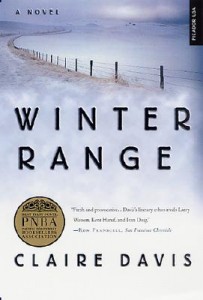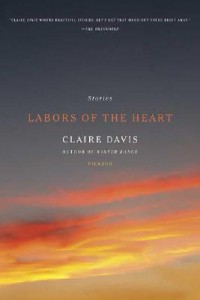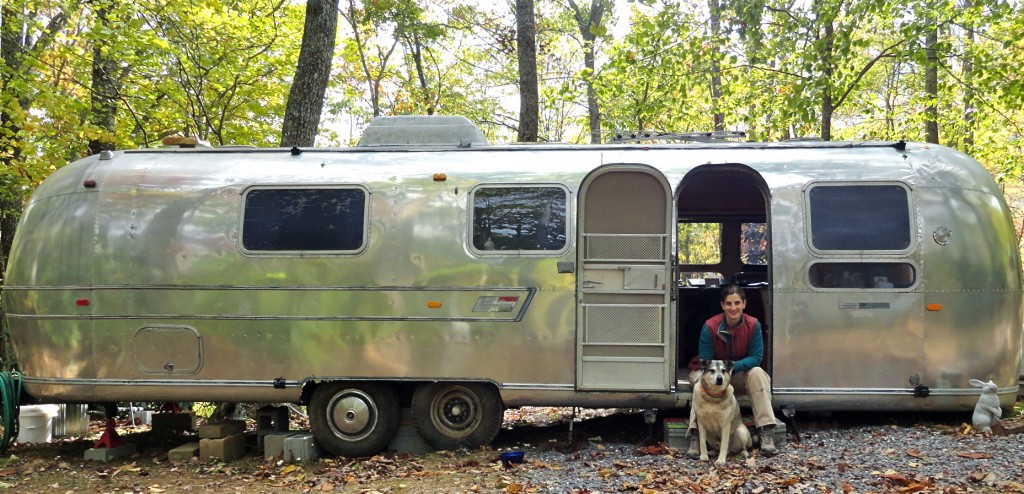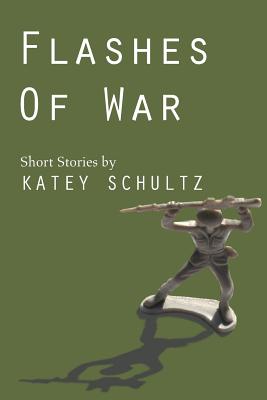The end of Katey Schultz’s debut collection, Flashes of War, contains an epilogue, an author’s essay of sorts in which Schultz briefly chronicles her intentions for the book and the creative journey in composing its stories.
“What better way to begin,” Schultz writes, speaking of the wars in Afghanistan and Iraq as source material, “than with unanswered questions and the creative freedom to write my way toward something I could believe.”
Schultz’s book reads with confidence and authority, born from the mind of an author who has managed to embody her characters and the situations and surroundings in which they exist. In an era when the importance of short fiction is debated ad nauseum, Schultz has stepped out from such contentious dialogue with a collection of short-shorts that serves to highlight the value of abbreviated, urgent storytelling—of precise, finely wrought metaphors and evocative images that linger long after you turn the page.
But perhaps what I found so enchanting about Schultz and her journey is not how much she put on the line creatively with this collection, but the personal risk and gravity she endured in trying to capture something as current and still-evolving as a country caught up in a two-front conflict.
In 2009, with an MFA and pink slip from her part-time job as a barista, Schultz packed her Volvo and hit the road, traveling from artist residency to artist residency as she began researching and writing what would become Flashes of War. “Just about everything I owned fit in my car,” Schultz says. “I stored seventeen boxes of books in my parents’ attic and went anywhere folks would take me that didn’t cost a fee.”
After spending thirty one of thirty six months on the road writing and revising, Schultz finished her collection, and following numerous rejections from publishers and agents—despite publishing many of the individual stories—the book was recently released by Apprentice House at Loyola University Maryland. As she prepared for the release of the collection, Schultz recently took the time to chat with me about her process, the choice of flash fiction as a form, and what makes a story worth telling.
Interview:
Nick Ostdick: Flashes of War ends with a wonderful mini-essay of sorts in which you discuss the genesis of the book, specifically the relationship between research and imagination as the driving force behind so many of these stories. I’m curious how you struck a balance between the facts and the fabricated. How did you weigh research with creative license?
Katey Schultz: Great question. I think this is something I’m still trying to articulate for myself and my readers. As I was writing, I had an inner sense that I needed to strike a balance between research and imagination. That much was immediately clear. But I think what pulled me from the documentaries, the reports from journalists, the YouTube videos, and the photographs was always something like a burst of curiosity. The greatest stories are those that begin with an unanswered question. I had a lot of questions about these wars, and still do. By researching, I could comfort myself somewhat—as though “getting the facts” might somehow make sense of the mess.
But as a fiction writer, I gravitate toward imagined narratives, so it often didn’t take much before I was off and running with some imagined idea. I’m not sure that’s articulating it as well as I can, but here’s another thought: I also tried to “overstuff” my brain, at times. I remember one summer when I was teaching at the Interlochen Center for the Arts and writing the book. I’d come home between the two classes that I taught and watch war films—Tour of Duty, Generation Kill, etcetera—then go back into the classroom with these bright, striving, teen writers. The contrast was intense both visually and mentally, and inevitably I’d finish teaching each day and be chomping at the bit to get back to the book. It worked well.
To me, one of the great difficulties with a book like this is attempting to capture something—a moment, cultural movement, political landscape, etcetera—as it’s unfolding, especially these days with twenty-four-hour news cycles and analysis of events and the analysis of the analysis of the events. Did you struggle with chronicling something that’s still very much happening?
Some folks feel very restricted by having to research their fiction before they can write it. I found that limitation quite freeing, actually, and I think it was because it gave me something solid to stand on. The wars were happening. I could name them and read about them and see their effects anytime I got online. Having that in my face all the time (and intentionally choosing to subject myself to it) kept me confident that I could take the leaps I took. All of the stories in Flashes of War take place in real places and the bases or locations mentioned are actual. I looked at Google maps and satellite images. I considered whether a character looking west would see mountains or desert. I got pretty obsessive about it. I don’t know whether that obsession shows up in the book, but I do know that it gave me confidence to write and it’s what continues to fuel me as I work on the novel.
I remember the day I found out the United States killed Osama bin Laden and I remember knowing immediately that this fact alone dated everything I had written. I also remember several other war writers “making it big” before I could get Flashes of War out from under me, and that was both exciting and challenging to watch. But beyond Bin Laden, I really wasn’t phased by the challenge of chronicling something that is still very much happening. The issues the stories in Flashes of War zero in on are timeless: how to survive with a missing limb, how to take a dump in the middle of a war zone, what it feels like to be widowed, what happens when boys not even old enough to vote are sent off to war, how one soldier dies and the other is left standing, how even through the blood and guts there are still beautiful and laughable moments. These things don’t change with the twenty-four-hour news cycle and I suspect, at their very core, they don’t change from war to war, either.
Are there certain stories where the research drove the pieces? Where imagination took the lead?
Imagination took the lead on many of the voice-driven stories such as “I Told Them,” “They Call Us Cherries,” “Getting Perspective,” “While the Rest of America’s at the Mall,” “With the Burqa,” and “Home on Leave.” In each of these stories, I heard the first line, hit the keyboard, and kept typing. I don’t really like to talk about “channeling” because I think that’s too dismissive. But I do feel that with these stories I just got on a train and kept riding. It was much more about listening at that point than it was about consciously composing something. It might be fair to say these came out of un-researched ideas I had held about the wars for years—that training for the Army would involve a certain measure of verbal abuse, that hazing or physically an psychically violent experiences were “par for the course” in training for war, or that being widowed would be just as hard as shipping out (if not more difficult), and that shipping out at such a young age would plant the seeds for long-standing internal conflicts. So those ideas had, in some way, been steeping for a while… and were probably brought to the surface again by my immersion into the subject of war.
I’m intrigued by the idea of “overstuffing” your brain. Is inhabiting your material or subject matter so intensely part of your general writing process, or was this immersion just something necessary for these stories?
Inhabiting the material is definitely a major part of my writing process. I have to leap so far for the characters that I choose—it’s not as though I’m writing about a thirty-something, mild-mannered, white girl. I’m writing about dudes in camo, women in situations I can barely fathom, children who have only seen their country in wartime…the only way to make that leap seem doable is to get in there, shake everything up, then look around the room and take in the mess that I’ve made. To extend the analogy, the stories come together when I can see the pieces that go together, line them up, and I start building something that feels right.
Speaking of the book’s form, and very simply put, why flash? What was it about the flash form that suited it well to this material? I mean, full-length collections of flash are not something you run into every day…
I’m glad you asked about the flash fiction format, and to be honest, it was one of the challenges I faced in finding a publisher for the book. I had numerous agents tell me that, despite the strength of the writing, they just didn’t know how to represent or market flash. Fair enough. But I think the reasons for approaching the wars with flash fiction are quite necessary and obvious—traumatic or war-based experiences are often experienced and remembered in short bursts of nearly unfathomable, layered, and precise emotion and imagery. That’s how the brain works in hyperdrive and that’s how memory can work (and haunt us) as well. And as far as my own abilities as an author are concerned, when I first started writing about the wars in 2009, I didn’t know very much about them. The only narratives I could sustain were short, flash-sized ones. In time, I was able to write longer and dig deeper, hence the mix of full-length and flash-sized stories in the book.
What I found so striking about the way you work the short-short is that some of the stories feel like complete, finished thoughts, while others feel more like scenes, fleeting moments in these character’s lives in which the reader has access. Was there something conscious going on that differentiated a “complete” story for you versus something more imagistic or scenic, or was this move more intuitive?
I’d have to say it was intuitive, as that stuff just didn’t enter my brain as I was writing. It never does, and I hope it always stays that way. I can think about the intentionality of the work later, but when I’m in it I just have to turn all that stuff off. The ending for me is always about whether or not something feels right, or true. I ask myself: “Have I landed on something authentic here or do I need to keep at it?”
If you felt you didn’t land on something authentic, did you continue to work with the story or are there pieces that were abandoned?
There are pieces that were abandoned. I tried to write from the perspective of an Iraqi suicide bomber in the aftermath of Abu Graib and I just couldn’t nail it. I had the metaphor and closing image, but I didn’t have the heart of the character. I couldn’t get close enough to it. I couldn’t find a way in. There are other things I didn’t touch, too, because they felt too politically laced and if I wrote about them, the language would have triggered so many other meanings in addition to my intent that it felt like an uphill battle. For instance, I wanted to write from the perspective of a contract worker driving a truck for Haliburton, but even that word—Haliburton—does so much for the American reader right now that I didn’t want to touch it.
In your estimation, then, is the collection supposed to be apolitical? Whatever your politics, did you find it difficult to keep the book fairly neutral?
Yes, the book is absolutely supposed to be apolitical. I didn’t have an agenda other than to explore and try to answer some questions for myself. I didn’t find it difficult to keep the book neutral as far as I know it, but what’s challenging is that I don’t know what it is that I don’t know. In other words, I can’t see my own naivete and I can’t see what I’m leaving out. One of my mentors, Claire Davis, talks about being able to see your own blind spots when you’re writing. When writing Flashes of War, I felt I had to face that handicap not only from a craft perspective, but from a cultural perspective as well. So the hard part is putting the book out there as a “broad spectrum” of experiences representing the wars, when I know for certain there is more that could be written. One thing I’m working on now is developing a deeper, more precise understanding of the female, Pashtun, Afghan experience.


I assume this deeper understanding is in part because of the new novel you mentioned?
Yes, I’m working on a novel inspired by “The Quiet Kind” and “Aaseya & Rahim” from Flashes of War. Aaseya is a Pashtun female and she’s infertile, which is a near death sentence in parts of Afghanistan. I’ve just finished my first draft of the novel and I know that Aaseya’s sections are too Western. So I’m trying to figure my way into and around that, and get to something more authentic. How does desire manifest in a character like her? How does anger find its way out? The human beings that I know in real life are complicated enough, but leaping into another culture, ecosystem, religion, and bundle of war-time experiences adds another few layers.
In talking with writers, I’ve noticed that so many of us have a batch of themes we keep returning to, subjects we keep trying to reexplore, redefine, and reinterpret. What is it about this material that keeps calling you back?
The thing that keeps calling me is difficult to pinpoint because, much like the wars themselves, the impact is pervasive and unfortunately still unseen by so many Americans. We’ve lost more soldiers to suicide than to the wars themselves. We’ve created an entire generation of men and women with missing limbs, PTSD, traumatic brain injury—you name it, they’re experiencing it. We’ve been at war as a nation for so long now that any child in middle school today has very few memories of life when their nation wasn’t “fighting evil” or at risk of “terrorist extremists” or touting the language of the “global war on terror.” Regardless of whose “side” you’re on, our country will feel the effects of these things for decades and I don’t think I’ll ever be able to stop looking at that. It’s not just a curiosity; it’s a citizen’s duty. We are so fortunate in this country—many of us do not have to struggle for the basics of food, water, and shelter on a daily basis. We have the luxury to ponder things, to stay informed, and to consider the right course of action. Given these fortunate circumstances, we ought to look long and hard at what’s happening—whether we’re fighting on the front lines or watching from our recliners in our living rooms or just trying to raise our kids in a safe world. It’s a matter of careful and intentional observation. This can often lead to a softening of the heart, a changing of ideals, an opening of minds, and perhaps ultimately a positive call to action, however that may manifest.
In the epilogue, you also write: “I wanted to write my way toward answers to these questions by considering the intimate moments of a soldier’s or civilian’s life…What better way to begin than with unanswered questions and the creative freedom to write my way toward something I could believe.” Can I assume that story as a vehicle for puzzling out the world—a lie that tells a truth, essentially—is what you believe fiction’s job is? Or at least these fictions?
Absolutely. But of course, when you’re in the thick of writing it, it’s too heavy handed to think of a story in this way. It’s only later, I believe, that a writer can hold a story up to this light and consider whether or not it’s pulling its weight. Writing is fun, after all. It’s hard work, but it’s fun—I laugh when I write; I get lost, I talk to myself, I pace the room, I pet the dog, I stretch, I stare out the window. That’s kind of what you do when you’re on vacation, right? So it’s not all about the agenda to me, and I do of course believe in the pure and simple power of a damn good story. That will never die.
Further Links and Resources:
- Vist Katey Schultz’s website.
- Subscribe to Katey Schultz’s bimonthly newsletter.







